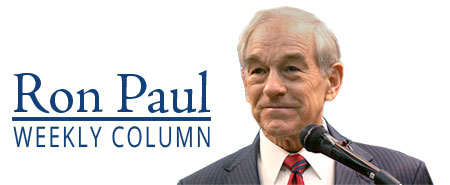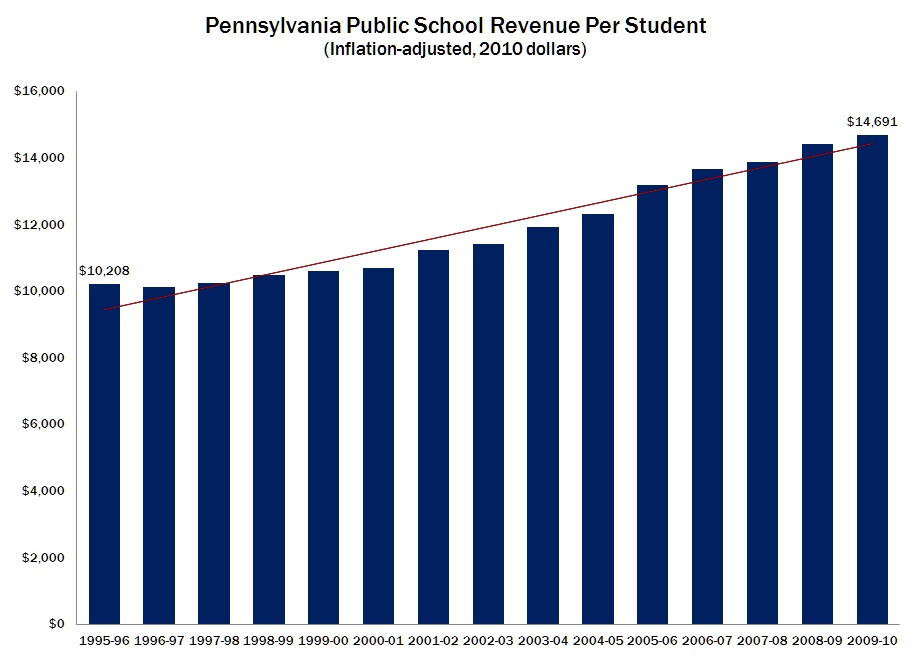Tag: no child left behind
In Move To Ban Charter Schools, Bernie Sanders Introduces ‘No Child Left Ahead Act’

WASHINGTON, D.C.—Bernie Sanders has come out against charter schools. He is not a fan of the inequality and quality education they create. Sanders continued his attack on the schools this week, saying he would ban for-profit charter schools if elected president.
But in the meantime, the senator from Vermont has introduced official legislation to back his position: the No Child Left Ahead Act, a bill that would ban students from actually receiving a decent education in the public school system.
Real Education Reform Leaves the Government Behind

Among the items awaiting Congress when it returns from its August break is reconciling competing House and Senate bills reauthorizing No Child Left Behind. These bills passed early this spring. Each bill is being marketed as a huge step toward restoring state and local control over education. However, an examination of both bills shows that both provide local schools with only limited relief from a few federal mandates.
The biggest problem with these so-called reform bills is that they do not significantly reduce federal education spending. Congress and the executive branch use the promise of “free” money — which they have taken from the American taxpayer — to convince state and local governments to allow the federal government to control the classrooms. The only way to protect American schoolchildren from schemes like Common Core is to repeal, not replace, the federal Department of Education.
Restoring local control over education would be a good step toward restoring constitutional government. However, simply replacing federal bureaucrats with state, or even local, bureaucrats will not create an education system capable of leaving no child behind.
Continue reading “Real Education Reform Leaves the Government Behind”
IT’S NOT FAIR – THEY CAN’T CHEAT ANYMORE
Another liberal Democrat, union supported, storyline obliterated by facts. It seems PA test scores plunged in math and reading. How could this happen? Obama has been in charge for four years. His Federal government solutions to making our kids smart should be working by now. Our fine batch of union teachers and their 4% per year salary increases and gold plated health and pension plans must surely be working their magic on our children and making them smarter. Right? Well, it seems a monkey wrench was thrown into the ever increasing test scores in PA. Once schools were prevented from cheating and faking test scores, the scores plummeted – Especially in the City of Philadelphia. More than 20% of Phila public schools were CAUGHT cheating. I’m sure there were others that were not caught.
The teachers union slimeballs blame the drop in scores on the draconian education “CUTS”. Here are a few inconvenient facts for the union bloodsuckers:
PA spends $26 billion per year on education, more than $14,000 per student – up 40% since 2000. Does this chart show draconian cuts? Private and charter schools without union teachers spend less than $12,000 per student and get far higher test scores.

Here are some more inconvenient facts:
Since 1995, when Pennsylvania doubled taxpayer spending on K-12 education from $13 billion to more than $26 billion, SAT scores have been flat and state results on the U.S. Department of Education’s Nation’s Report Card haven’t improved much since 2002. Today, Pennsylvania school districts spend more than $14,000 per student—with some as high as $25,000—and studies show absolutely no connection between district spending and student achievement. Moreover, the achievement gap in some of our most failing and violent public schools continues to widen, like the Harrisburg School District where taxpayers invested more than $18,000 per pupil but 9 out of 10 students couldn’t reach proficiency in math. Because these facts get in the way, the public school industry resorts to rickety rhetoric, citing “draconian funding cuts” over the past two years. But the truth is these cuts occurred with the end of the federal stimulus, which was always intended to be temporary aid. Excluding federal funds, Gov. Corbett’s proposed budget actually represents a two percent increase in spending on K-12 education since FY 2007-08, the year before the stimulus.
After decades of Federal government mandates, programs, and initiatives, along with doubling and tripling spending on education, our children are dumber than ever. But if we just throw another $2 billion at teachers unions, all will be well. The City of Philadelphia school district, in addition to being bankrupted by their union contracts, has achieved the fantastic result of having 13% of its 250 schools meeting the minimum standards for reading and math. They have certainly lived up to the promise of NO CHILD LEFT BEHIND – they have dumbed down every child in Philadelphia. And you wonder why this country is doomed.
Pennsylvania’s school test scores drop for the first time since 2002
The percentage of Pennsylvania students meeting state math and reading standards on the PSSAs – the annual academic accountability test – declined this year for the first time since the tests began in 2002.
Education Secretary Ron Tomalis on Friday attributed the drop to tight security procedures enforced during the spring testing, especially in 110 schools across the state still under investigation for possible cheating from 2009 to 2011.
This is the first year, Tomalis said, that the public can be confident that, overall, test scores are not tainted by adult interference. “We have hit the reset button on student performance,” and the 2012 scores provide a new baseline, he said.
Well over 100 educators will eventually face state disciplinary charges for cheating that could lead to the revocation of their professional certificates, Tomalis said. But that could take years, and the results of state disciplinary board hearings in Harrisburg would be disclosed only if educators were disciplined.
In Philadelphia, 53 district-run schools and three charter schools are still under investigation for allegations of cheating in past years.
Of those 53, all but two experienced declines in both subjects from the previous year. The Philadelphia Military Academy at Elverson had a 71 percent decline in math scores from 2011 to 2012, the biggest drop of any city school. The two other schools had a decline in either math or reading.
Statewide, the 110 schools that had been under investigation this year for cheating averaged a double-digit drop in math and reading scores. With those schools taken out of the mix, math and reading scores for students statewide would have declined about 0.5 percent. With the investigated schools included, they were down about 1.5 percent.
Last year, 77.1 percent of the state’s students scored at or above grade level on the math test; this year, 75.7 percent met the mark. In reading, student scores declined from 73.5 percent at grade level to 71.9 percent. Tomalis called those percentages “unacceptable for Pennsylvania,” adding that everyone needs “to redouble our efforts.”
In Philadelphia this year, 50 percent of students districtwide performed at grade level in math, 45 percent in reading. That is down from 59 percent in math and 52 percent in reading last year.
“These results are clearly disappointing, and they simply remind us of the work we have ahead in developing a strong system of schools in Philadelphia and in supporting our students’ learning,” School Superintendent William R. Hite Jr. said.
The news was not all bad. The High School of the Future was one of the most improved schools in the district. It rose 27.2 percentage points in reading and 22.8 percentage points in math.
“I took a double take,” said longtime district principal Rosalind Chivis, who has been at the helm of the 425-student school since 2008. “I knew we would improve, but it blew me away when I saw the data. I was so very proud of the learners. They worked really, really hard, and a big part of it is motivating them to do well, to take the test seriously and do well.”![]()
Along with the decline in test scores, the number of schools statewide meeting achievement benchmarks declined sharply from last year, in large part because Pennsylvania’s No Child Left Behind school accountability standards went up a sizable amount from 2011.
The state thresholds went up from 67 percent of students required to make the mark in 2011 to 78 percent this year. In reading, the benchmark went from 72 percent to 81 percent.
This year, 51 percent of schools statewide met state academic benchmarks by having the required percentage of students scoring at grade level or above. That was down from 75 percent in 2011.
In Philadelphia, only 33 – 13 percent – of the district’s 250 schools met state standards, down from 41 percent in 2011.
Among city charter schools, 54 percent met the benchmarks, down from 63 percent in 2011. In Philadelphia’s suburbs, 65 percent of schools made the mark, down from 81 percent.
Statewide, in addition to Philadelphia, five districts and three charter schools remain under investigation for cheating from 2009 to 2011, Tomalis said. They are the Harrisburg, Hazleton Area, Pittsburgh, Reading, and Scranton districts and the Imhotep Institute, Philadelphia Electrical and Technical, and Walter D. Palmer Leadership Learning Partnership charter schools.
An additional five districts and one charter school that were under investigation this year will continue to be monitored and will have strict new test security measures. Though no one was identified as having cheated, there was no satisfactory explanation of the irregularities at those schools, Tomalis said.
Some educators and education advocates blamed the drop in student performance on reduced funding for schools.
“It defies logic that they could expect student performance to improve after cutting nearly $1 billion” in funding in 2010-11, said Wythe Keever, a spokesman for the Pennsylvania State Education Association, the state’s largest teachers’ union.
Keever said cheating “is wrong. . . . Those individuals should be held accountable.” But he said Tomalis was using cheating revelations to “shift attention away from the real issue: adequately funding public education.”![]()
Tomalis said the state’s Technical Advisory Committee found heightened test security the only factor in the drop. “I don’t buy the excuse the numbers went down because of budget cuts,” he said.
Union leaders were quick to criticize state officials for tying cheating to the statewide drop in test scores.
“Any cheating on tests is deplorable, but to use an incomplete investigation involving a handful of schools and educators statewide to discredit our public schools and the educators who have dedicated their careers to helping all children reach their full potential is nothing short of a political cheap shot,” Ted Kirsch, president of the American Federation of Teachers Pennsylvania, said in a statement.
Jerry Jordan, president of the Philadelphia Federation of Teachers, agreed. Cheating may have occurred, he said, but its impact is negligible.
“When resources are pulled from our schools, scores drop,” Jordan said.
By 2014, according to the federal No Child Left Behind law under which the state tests are mandated, 100 percent of students should be scoring proficient or advanced. Virtually all educators see that as unrealistic.
Last year, the Obama administration started allowing states to scrap the 2014 deadline if they would agree to adopt new rules that focus on the bottom 15 percent of schools, and make other changes.
Thirty-two states, including New Jersey, and the District of Columbia have been granted the waivers.
Tomalis on Friday called it likely that Congress will pass a new version of No Child Left Behind in the next year or two and that the state did not want to keep changing accountability plans. He instead asked for federal permission to freeze test benchmarks for schools at 2012 levels, but was turned down.
Pennsylvania’s academic thresholds are set to increase to 89 percent in math and 91 percent in reading next year.






